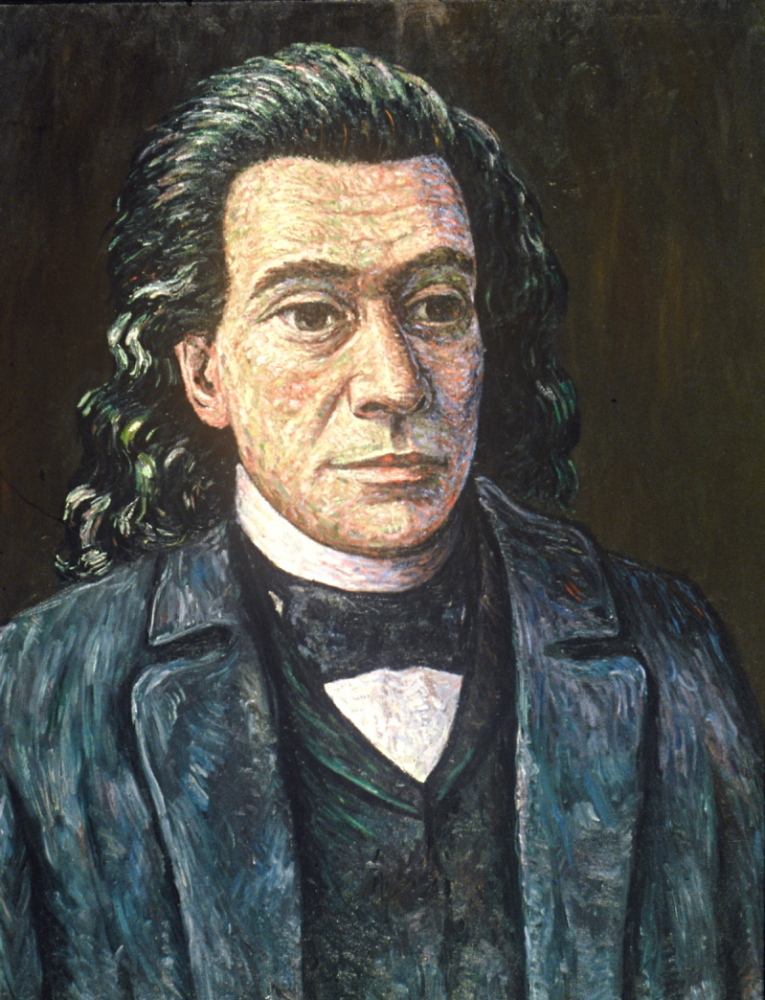“We’re all going to face death sometime. This movie shows how do we do it in a way that’s graceful, meaningful and caring, and loving.”
That’s Maine-based director Richard Kane describing his newest documentary “Jon Imber’s Left Hand,” which screens as part of the Maine Jewish Film Festival (mjff.org) at 3:30 p.m. Sunday and at SALT (salt.edu) at 6 p.m. Wednesday.
It is part of the “Maine Masters” film series (mainemasters.com), which seeks to “give recognition to artists who haven’t been given recognition they deserve,” according to Kane. This film is one especially close to Kane’s heart. It’s not hard to see why.
Imber, a renowned painter, Harvard art professor and part-time Maine resident, was diagnosed with ALS (also known as Lou Gehrig’s disease) just two years ago. Since then, the affliction has progressed with ruthless speed, robbing the prolific artist of most of his motor skills and forcing him to paint, with extreme difficulty, with his left hand and the assistance of his devoted wife, Jill Hoy. (Imber had always been a righty.) And yet he’s painting every day, producing works he considers the best of his career, and which Kane says provide invaluable insight into the mind – and indomitable will – of a true artist.
“I think that Jon’s disability didn’t quite change his work, but in a way it really focused him on how the authenticity can be achieved using his left hand,” explains Kane. “His right hand was so trained. It wasn’t quite clunky (Jon’s word) and crude enough, and he’s associated crudeness with authenticity. Having to switch to his left hand, he found what we consider mistakes that were really spontaneity – something very direct about it that he couldn’t get with a trained hand.”
It’s a situation that is as fascinating as it is heartbreaking. Imber’s mind is driving him to create as he’s always done, but the devastating changes in his body force that inspiration into new forms. According to Kane, “Jon’s found a way through his disability and the never-ending movement towards his death, to make use of his left hand, both hands, to come up with paintings that are really extraordinary. I like some of his left-handed (work) as much as anything he’s ever made – they find a balance between abstraction and landscape. He’s always looked for ways to challenge himself, to deal with the complexity of life, with issues that are perplexing.”
Kane becomes emotional as he details the rush to finish the film before the Sunday screening. (He says MJFF director Louise Rosen told him they would show the film as a work in progress, but he vows he’ll have it finished in time.)
“I didn’t know if we’d be done by March and Jon’s ALS is progressing rapidly,” Kane says. “It would be great for Jon to be there. I think this is perhaps the best film I’ve ever made. I’m hoping it has legs and tells Jon’s story around the world. I hope it will open windows for people, not necessarily lovers of art, to become appreciators of what goes through the mind of the artist.
“It’s a film with so many layers and levels, most importantly how you deal with your own mortality. I feel there’s a lot to have learned from experiencing Jon and his story and his relationship with Jill. I’m honored that they’ve let me in. There’s something profound about a person’s life, being terminally ill, and what do you do to make that life meaningful.”
Dennis Perkins is a Portland freelance writer.
Send questions/comments to the editors.



Success. Please wait for the page to reload. If the page does not reload within 5 seconds, please refresh the page.
Enter your email and password to access comments.
Hi, to comment on stories you must . This profile is in addition to your subscription and website login.
Already have a commenting profile? .
Invalid username/password.
Please check your email to confirm and complete your registration.
Only subscribers are eligible to post comments. Please subscribe or login first for digital access. Here’s why.
Use the form below to reset your password. When you've submitted your account email, we will send an email with a reset code.